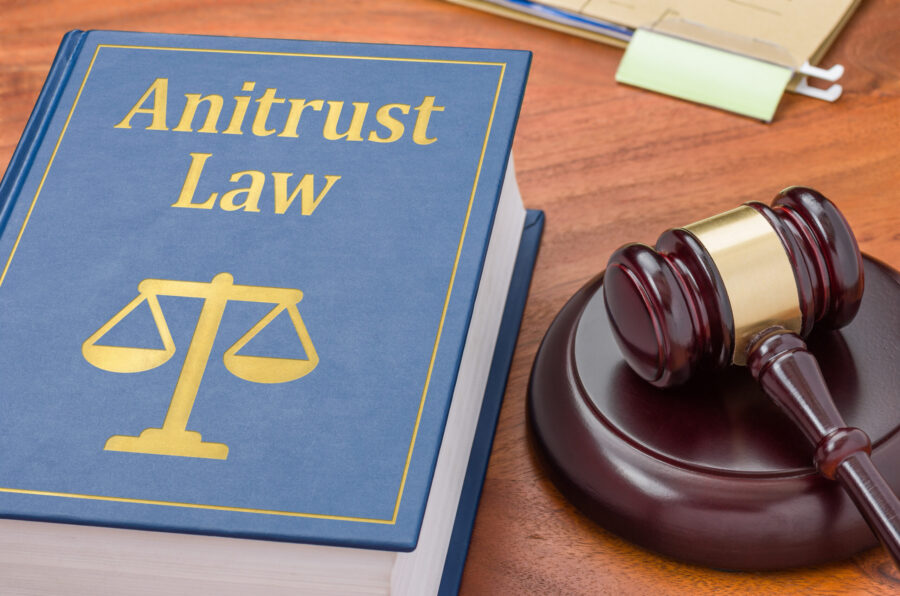
Understanding Antitrust Laws: Compliance and Risk Mitigation for Businesses

In the labyrinth of business law, navigating the treacherous waters of antitrust regulations can be bewildering. Yet, ignorance is not a business defense. For entrepreneurs, compliance with antitrust laws is non-negotiable and ignoring them can lead to severe penalties. The stakes are high, but so is the potential for growth and success when one understands and adopts proper practices to adhere to these laws.
The Pillars of Antitrust Law
Antitrust laws, also referred to as competition laws, are statutes developed to protect consumers from predatory business practices and ensure that fair competition exists in an open-market economy. The purpose is clear: to promote healthy marketplace competition by outlawing fouls such as monopolization, price fixing, and market allocation.
But what do these terminologies actually mean for your business?
Antitrust Violation #1: Price Fixing
This covert deal amongst rivals is the most notorious of antitrust sins. When competitors agree to set specified prices, discount levels, or terms for payment, it artificially inflates, manipulates or stops the natural competitive pricing mechanisms in the market, causing consumer harm. The agreements can be explicit or as subtle as a mutual understanding, a nod, or a wink.
Antitrust Violation #2: Market Allocation
Market allocation schemes typically involve competitors agreeing to divide territories or customers. For instance, two coffee shop chains might agree not to open stores within a certain distance of each other, thus denying consumers the benefits of choice and local competition.
Antitrust Violation #3: Monopolization
Is a company’s dominance illegal? Not inherently. But when a company, using its market power, excludes or prevents the entry of other companies, it is engaging in monopolistic behavior. This can include tactics such as predatory pricing, where a company undercuts competitors with below-cost pricing until they are driven out of the market, and barriers to entry such as exclusive supply contracts.
Compliance as a Shield
Understanding the regulations is only the first step. Developing a comprehensive compliance program is like equipping your business with a protective shield against the perils of antitrust violations.
Training and Culture
Education is essential. Regular training sessions can keep team members informed about antitrust best practices, key red flags, and the appropriate response when faced with a potential violation. This educational process not only informs but also fosters a corporate culture that prioritizes legality and ethics.
The Role of the Compliance Officer
Appointing a vigilant compliance officer is crucial. Their role is to manage the day-to-day activities of the compliance program, ensuring it’s effective and that employees have the necessary resources to make compliant decisions. Most importantly, they should be empowered to act without fear of reprimand when a possible violation is brought to their attention.
Auditing and Monitoring
Regular audits of your business practices and proactive monitoring of industry events can offer early detection of risks. Are there any negotiations that hint at price collusion? Any suspicious expansions or terminations of business relationships? An attentive eye could save your business from entangling itself in antitrust woes.
Building a Strong Antitrust Policy
An antitrust policy is more than just a document filed in a drawer; it’s a living, breathing part of your company’s culture. It serves as a guide for your employees, laying out the laws, the company’s compliance expectations, and the consequences of non-compliance.
Content of the Policy
The antitrust policy should be clear and comprehensive. It must outline:
- A commitment to operate within the bounds of competition laws
- Procedures for reporting suspected violations
- The consequences of non-compliance
- Regular review and updates to reflect changes in the industry or the law itself
Dissemination and Acknowledgment
Every employee, from the C-suite to the interns, should read and comprehend the antitrust policy. Acknowledgement statements are a simple way to ensure that individuals have indeed read and understood the document, and could later serve as evidence should the need arise.
Seeking Legal Counsel
When in doubt, it’s always wise for a business to seek legal counsel. Legal professionals specialized in antitrust law can provide invaluable guidance and support, whether it’s drafting policies, conducting thorough compliance training, or responding to an investigation by antitrust authorities.
The Expertise of Mullen, Holland & Cooper, P.A.
Mullen, Holland & Cooper, P.A. is recognized for offering the expertise and experience required to guide businesses through the intricate landscape of antitrust regulations. With a solid track record of assisting companies in Gastonia to achieve and maintain antitrust compliance, their services extend to representing clients in antitrust litigation matters as well.
Conclusion
Antitrust laws draw the line between sensible commerce and corporate abuse. For businesses, walking that line is a critical balancing act that requires education, clear policies, and the occasional expert hand. The cost of non-compliance could be insurmountable, but the benefits of adhering to these laws — the fostering of a fair market, consumer trust, and an integrity-driven corporate reputation — are immeasurable.
For businesses, it’s not just about dodging penalties; it’s about creating a sustainable and ethical operating environment that supports growth and innovation. By partnering with legal counsel like Mullen, Holland & Cooper, P.A., businesses in Gastonia can take proactive steps to not only understand and adhere to antitrust laws but also to use legal insight as a strategic business advantage.
In a world where economic powerhouses often shape their destiny in the court of public opinion, the narrative of your business can either be a warning to others or a testament to the virtue of competition and fair play. The choice, and the effort to make it, lies firmly within your hands. Commitment to antitrust compliance today will safeguard your business’s tomorrow.






